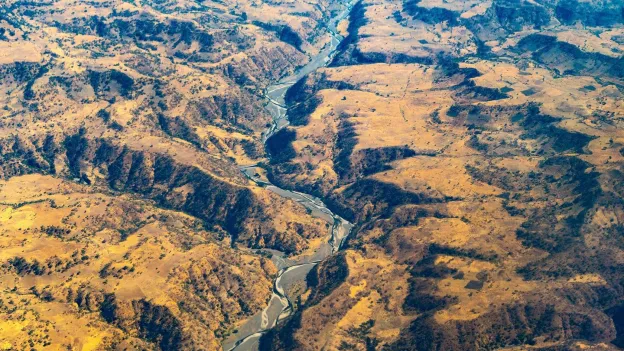
Africa Could Split Faster Than Expected: East to Become an Island with Ocean In Between

africa, europe, the red sea, mount kilimanjaro, the rhine graben, madagascar, india - Learn about the possible splitting of Africa into two continents, the ongoing rift process, and the geological implications.
The process of Africa splitting into two continents has been ongoing for 30 million years. Previously, Africa was one large tectonic plate. Recent research suggests the split creating a new ocean between the Nubian plate in the west and the Somalian plate in the east could occur in 1 million years instead of the previously estimated 5 to 10 million years. This rift process is causing the plates to break apart along rift valleys, leading to the formation of two new plates, known as the Great African Rift. The rift lies along the eastern coast of Africa, with the rift increasing in size by 0.8 to 2.5 centimeters annually.
Geologists speculate that a superplume rising from deep within the earth is causing the plates to move apart faster than usual, resulting in the imminent split. While the exact timeline remains uncertain, the formation of a new ocean, akin to the Red Sea between the Arabian plate and Africa, is anticipated, leading to the creation of oceanic crust.
Experts like Wouter Schellart explain that while the process currently remains in the rift phase and not the drift phase, indicative of the formation of oceanic crust, the potential creation of a new oceanic crust on the African continent is based on computer models and may still take millions of years to materialize.
The splitting of Africa can have positive geological outcomes, such as the formation of rivers, lakes, and the discovery of early human fossils. However, the prospect of earthquakes resulting from the plate breakup poses challenges for current African residents. Additionally, volcanic activity along the rift zone, exemplified by Mount Kilimanjaro, offers tourism opportunities due to the formation of scenic volcanoes.
While the splitting of Africa will not have direct consequences for Europe due to its location on the Eurasian plate, Europe does experience mild seismic activity along rift systems like the Rhine Graben. Unlike Africa, these rifts are less active and are unlikely to cause continental separation.
Looking ahead over millions of years, the eastern continent of Africa is projected to resemble an island separated from the western continent by a new ocean. This geological transformation mirrors the separation of Madagascar from India around 110 million years ago, leading to the creation of a new continent.


Leave a comment